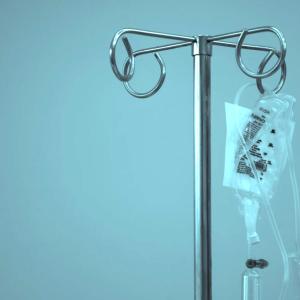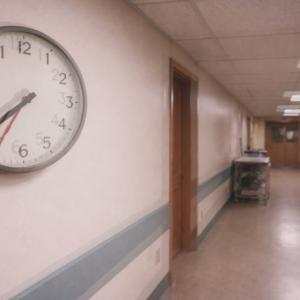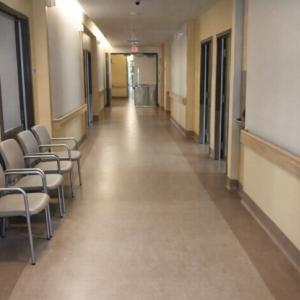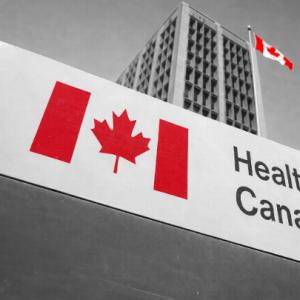Measles has landed in Canada and there is a flash flood of questions
This article was originally published in The Medical Post
As cases of measles rise in Canada, many people have questions that deserve some airtime.
To provide the most relevant information, rather than asking prepared questions, I asked three experts in different fields what measles questions they have received recently and to answer those. Interestingly, the questions were similar and the answers, differing because of their respective fields of expertise, have resulted in highly germane, timely information.
One of the most common questions asked of Dr. Rick MacDonald, a community pediatrician with decades of experience in neonatology and pediatrics, is how contagious is measles and
should they worry about it? One can imagine, with children in daycare and school, those who love them are concerned about their risk of infection.
“Ninety per cent of unvaccinated children will get measles if exposed.” Dr. MacDonald said, “To protect children, they should receive their first dose of MMR vaccine at 12 to 15 months of age; second dose at 18 months of age or anytime thereafter, but no later than around school entry.”
Dr. Raywat Deonandan, professor of global health epidemiology, has been asked similar questions about why children and adults should suddenly worry about measles now when they haven’t been worried previously and explains that, “as vaccination rates drop below 95% everything changes for the worse. It’s useful to keep a historical perspective. Since mandatory MMR vaccination became the norm in the 1970s, Canada has seen a dozen or so cases per year, perhaps getting as high as a couple of hundred cases in unusual years. Prior to vaccination, though, we saw 50,000 to 100,000 cases per year.”
Physician and professor of clinical immunology and allergy, Dr. Samira Jeimy, concured, “When vaccine coverage rates fall, the risk of outbreaks increases. Since the COVID pandemic the concept of herd immunity was misappropriated. Broader vaccination of the population to protect the vulnerable among us is the true concept of herd immunity, which reduces the overall transmission of the measles virus within the community, making it less likely for susceptible individuals to come into contact with the virus.”
Dr. Jeimy’s point is extremely important: Herd immunity refers to widespread vaccination of a population and that, and only that, protects us.
“The number one reason given by MMR hesitant parents is their belief that the vaccine will cause autism in their child,” said Dr. Deonandan, addressing why vaccine uptake has fallen. “This alleged association came into the public consciousness with the 1998 publication of a study by Andrew Wakefield. The paper was subsequently retracted and has since been deemed fraudulent. Multiple studies have since confirmed that there is no observed causal connection between the MMR vaccine and autism.”
Spring-boarding from the decline in vaccination rates are crucial questions concerning the efficacy of MMR vaccines. This is a complicated question with many components, and it’s best to start with the initial vaccine given to children.
Dr. MacDonald explains the rationale behind giving two doses of MMR vaccines: “Decreased response to the vaccine is as high as 7% with a single dose so the second one is given to capture those who did not respond to the first dose.”
“Two doses offer about 97% lifetime protection,” Dr. Deondan added, “But serological studies suggest that immunity can wane at a fairly precipitous rate, perhaps as much as 9.7% per year. There are primary or secondary vaccine failures. Primary failure is when a vaccinated person fails to mount an immune response. For MMR, this can be about 1% of those who received two doses. Secondary vaccine failure refers to antibody levels falling over time and 4-8% of ‘breakthrough’ measles infections among vaccinated people are the result of secondary vaccine failure.”
“If there’s uncertainty about waning immunity,” Dr. Jeimy said, “my preference is to give a booster dose provided there are no immunosuppressive medications or illnesses. However, the MMR, a live attenuated vaccine, is contraindicated in those who are severely immunocompromised.”
Dr. MacDonald added that the vaccine is also contraindicated for pregnant women.
All three of them agree on one salient point: whether your risk comes from a form of MMR vaccine failure or an inability to receive the vaccine, the best protection for individuals is maintaining the community vaccination level above 95%. This crucial point puts to bed the new mantra of infectious disease
protection being based on individual choices and puts it squarely back in the realm of public health, with protection occurring only when there is 95% vaccine coverage in the population. How dangerous is measles if you do get infected?
“About 0.1% of measles cases will die,” Dr. Deonandan explained, “and about 20% of measles cases end up hospitalized.”
Dr. MacDonald adds that there is a real danger for pregnant women since measles may cause pregnant women who have not had the MMR vaccine to give birth prematurely or have a low birth-weight baby.
Young children, Dr. MacDonald pointed out, infected before the age of two, are at increased risk of subacute sclerosing panencephalitis (SSPE), a very rare (7-11/100,000 cases) but fatal disease of the central nervous system that develops 7 to 10 years after a person has measles, even though the person seems to have fully recovered from the illness.
What treatments are available for those who get infected? “For children not fully vaccinated,” Dr. MacDonald explained, “data suggests that the MMR vaccine given within 72 hours of exposure may provide some protection and lessen symptoms and the second dose can be given earlier at 28 days after the first dose. The treatments given are largely supportive; I.V. fluids if a patient is dehydrated, oxygen if pneumonia is present and vitamin A for two days as many of those hospitalized will have a vitamin A deficiency. Immunoglobulins can also be given to modify symptoms in high-risk children and pregnant women.”
Measles prevention is the last pivotal question that each expert addressed. Dr. MacDonald cautioned that: “Children with measles are infectious four days prior to the onset of the rash and four days after the rash develops and should isolate from others. Those who are immunocompromised may be infectious longer and should isolate for the duration of the illness. Further, if seeking healthcare for measles, the facility or physician’s office should be informed of their infection prior to arrival to allow precautions to be put in place to protect others.”
For those trying to avoid infection, it’s important to remember that measles is airborne and a N95 is protective against infection regardless of what you think your vaccine protection may be. As can be seen from the above information, for adults who have received MMR vaccines, there are questions about the level of protection from measles they still have now.
Dr. Jeimy addressed the concern that those with only one vaccine—many of them prior to 1970—have had regarding their immunity by suggesting that:
“Expanding eligibility to include adults who may not have received the recommended two doses of measles vaccine during childhood
could help increase overall immunity levels in the population.” This recommendation is contentious because the Measles
vaccines: Canadian Immunization Guide states: “Adults born before 1970 can be presumed to have acquired natural immunity to measles; however, susceptible healthcare workers, travelers to destinations outside of Canada, and military personnel should receive MMR vaccine, regardless of year of birth.”
To be frank, how does this make any sense at all? If you are born before 1970, you are not eligible for a measles vaccine in Canada—even if you have only had one or no vaccines because you’re presumed to be immune. However, if you travel or work in healthcare, you are apparently not immune and eligible for a MMR vaccine. Obviously, there is no magic immunity conferred to anyone because they are in Canada or in any particular profession. The “presumed” immunity is based on assumptions about herd immunity—the 95% vaccination rate in Canada—and as that declines and cases rise, the risk in Canada is similar to the risk of travel or work in healthcare, because the risk refers to exposure to measles which we now have in our own communities.
All three experts agree that, going forward, increased vaccine coverage in Canada is necessary. Dr. Jeimy has enumerated what is needed:
1. public education campaigns to dispel myths and
misinformation about vaccines
2. ensuring easy access to vaccines through popup clinics
3. addressing barriers to vaccination such as cost and convenience
Added to this is a concern that, given we may need more vaccines to catch up with those who have eschewed vaccines and for those who have waning immunity, we need the federal government to address the issue of vaccine supply. So far there has been silence regarding how many vaccines Canada needs, how many we have and how many have been ordered.
“Rumours of vaccine shortages have already resulted in anxiety and uncertainty among the public,” said Dr. Jeimy, “potentially impacting vaccine uptake rates. Public health programs should provide regular updates on vaccine supply, procurement agreements, and distribution plans.”
Dr. Mary Fernando is a physician in Ottawa








